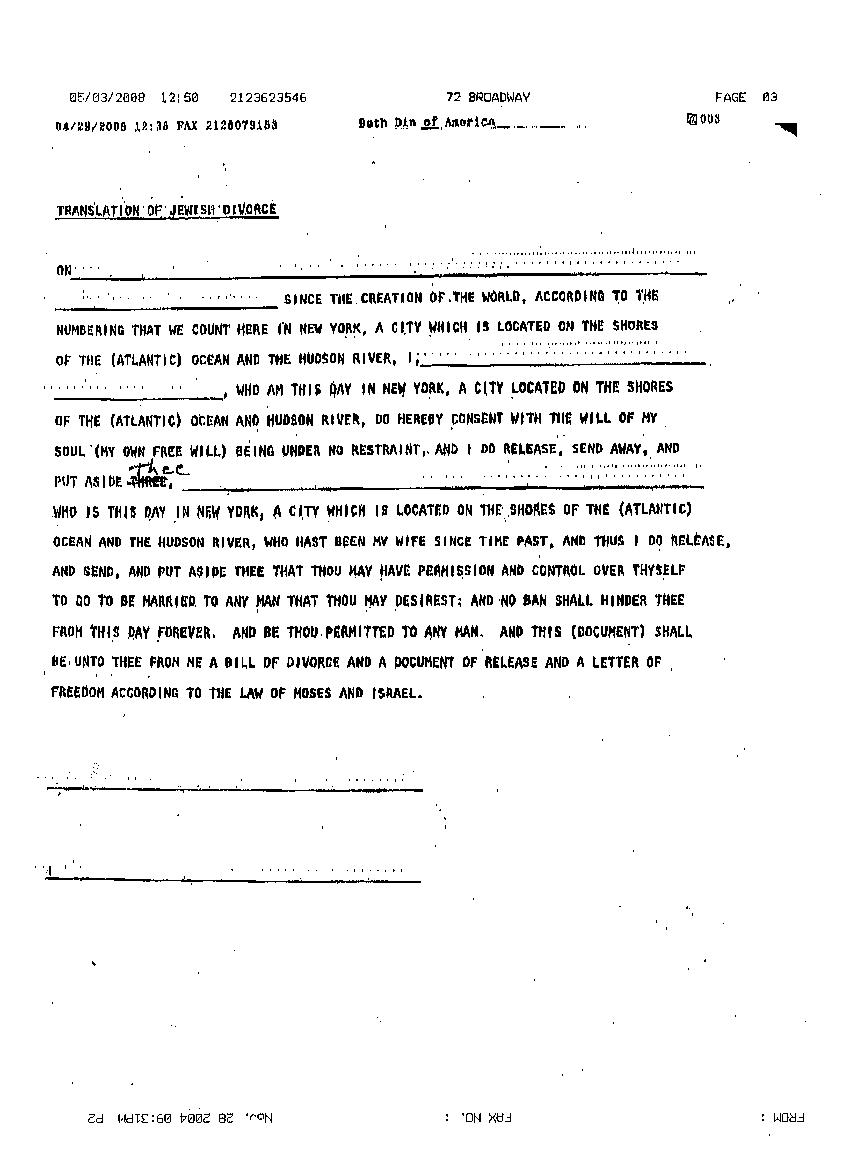Before the main section of the get (toref) was written, if the husband tells the sofer that he plans to permit his wife to everyone except one man but he doesn’t ask the sofer to write that in the get, does that ruin the get and he needs to write a new one? Rava and Rav Safra argue about this. Does writing a condition in a get invalidate the get? Argument between Rebbi and the rabbis. What if the husband says that she is permitted to all men except for those she is forbidden to by law? There is a difference depending on the severity of the law. What if he separates from her but leaves over one of the rights a husband has to a wife like being able to cancel her vows, not allowing her to eat truma, etc.? What is the basic text that needs to be written in the get? There is a disagreement in the mishna and then later developments in the time of the gemara. See attached file for the text of an actual get and a hebrew translation of it. Also attached is an English translation – courtesy: ITIM.
Podcast: Play in new window | Download
Subscribe: Apple Podcasts | Spotify | RSS
